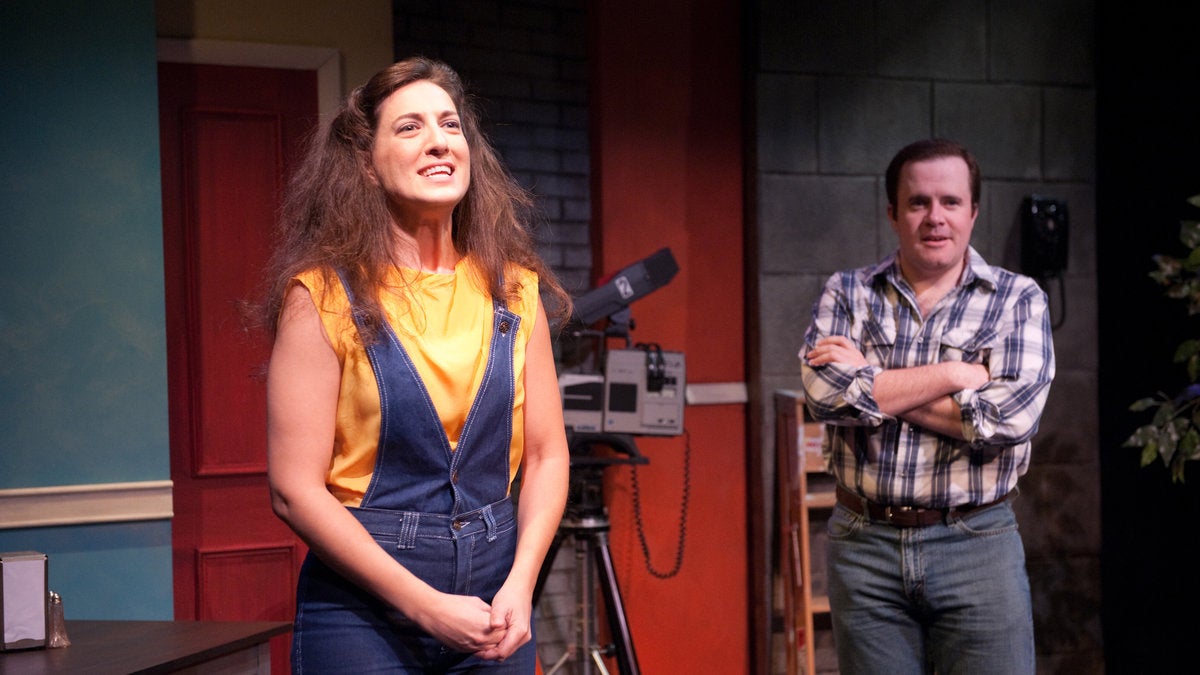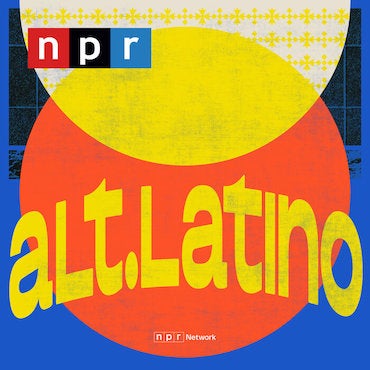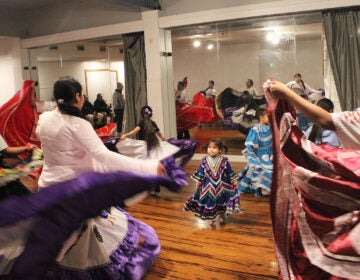Review: ‘Bunny Bunny’ and what friendship means

Leah Walton as Gilda Radner and Matt Pfeiffer as Alan Zweibel in 1812 Productions' "Bunny Bunny: Gilda Radner -- A Sort of Romantic Comedy." Photo courtesy of John Flak.
Nearly a generation ago, Alan Zweibel wrote a sweet and funny play called “Bunny Bunny” about his deep 15-year friendship with comedian Gilda Radner. Both rode the first wave of TV’s “Saturday Night Live” fortune – he as a writer, she as a super-talented regular who became a star. Viewers smiled when her face hit the screen; her comedy was infectious. The laughter died far too soon. Radner was struck down by ovarian cancer in 1989, a few weeks before she would have turned 43.
Given the years since the play had its world premiere at Philadelphia Theatre Company, it’s likely that plenty of young adults know little or nothing about Radner, her demanding stage presence, her catchy delivery or her ability to slip into any character.
A mark of Zweibel’s play, though, is its staying power. He wrote it, clearly, for an audience who knew Radner’s work and had been captured by the heady novelty of live TV’s rebirth and the over-the-top comedy “Saturday Night Live” was bringing to the medium. But as I watched the charming production by 1812 Productions that opened Wednesday, it became clear that you don’t have to know a thing about Radner or Zweibel for “Bunny Bunny” to be compelling. It’s a play about that hard-to-define and complex relationship – friendship – which it addresses on many levels.
When Philadelphia Theatre Company premiered “Bunny Bunny” 17 years ago, 1812 Productions was only planning to open its first season, still a year away. “Bunny Bunny” begins its 17th season, with a bang. Noah Herman, a directing assistant to the company, took full charge with this production, and makes an impressive 1812 Productions directing debut. The play is a series of tightly written, unusually short blackouts that allow it to be set in many years and places. Herman smoothly and efficiently moves the action around the intimate space of Walnut Street Theatre’s third-floor Independence Studio.
Radner and Zweibel were never lovers, but their friendship was anything but unrequited. It begins as colleagues at work, goes through a tortuous period when the two attempt to figure out just what sort of relationship they have, and ends with them living through each other’s milestones and being comfortable even in their arguments. (At Radner’s death, she was married to another popular comedian and actor, Gene Wilder.)
Leah Walton gets Radner’s alluring and off-handed quirkiness down right, in a portrayal that unambiguously shows the woman’s own ambiguity: Radner exuded self-confidence but was unassured and sometimes questioned her own ability. She seemed like a rebel but wanted to be like everyone else. She loved fame but was also uneasy about it and about what it meant to her.
Or at least that’s how Zweibel writes it, first in his book about their relationship, with the same title he then gave the play. (The full and nearly never spoken name is “Bunny Bunny – Gilda Radner: A Sort of Romantic Comedy.”) Zweibel is played by the actor and director Matt Pfeiffer, who’s grown into his profession on Philadelphia stages and, alas, acts less and directs more these days. (That’s not an aspersion tossed toward his directing capabilities.) He has a natural and endearing way with Zweibel’s self-portrait in “Bunny Bunny” – I got the feeling that as close as Walton seemed to Radner, that’s how much different his puppy-dog Zweibel is from the real thing. But it works; Pfeiffer’s goal is to emphasize the friendship, not the person. He does so convincingly.
The production, with a crisp sound design by Alex Bechtel, wouldn’t be complete without Matt Tallman, who plays so many incidental roles I stopped counting them at some point in the second half. He reminds you of the sort of comic actor who would display that sort of versatility on – well, on “Saturday Night Live,” for instance._“Bunny Bunny,” produced by 1812 Productions, runs through Oct. 27 at Walnut Street Theatre’s third-floor stage, on Walnut Street near Ninth Street. 215-592-9560 or www.1812productions.org.
WHYY is your source for fact-based, in-depth journalism and information. As a nonprofit organization, we rely on financial support from readers like you. Please give today.




